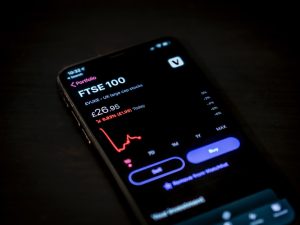Forex, or foreign exchange, is the largest financial market in the world, with trillions of dollars being traded every day. It is a decentralized market, meaning there is no central exchange, and traders can buy and sell currencies from anywhere in the world. Forex can be a profitable venture, but it requires knowledge, skill, and discipline. In this article, we will discuss how to practice forex.
1. Learn the basics:
The first step to practicing forex is to learn the basics. You need to understand the terminology, the different types of orders, how to read charts, and how to analyze the market. There are numerous resources available online, including books, videos, and tutorials, that can help you get started.
2. Choose a forex broker:
Once you have a basic understanding of forex, you need to choose a forex broker. The broker is the intermediary between you and the market, and they provide you with a trading platform, access to the market, and other resources. When choosing a broker, you need to consider their reputation, fees, customer service, and trading platform.
3. Practice with a demo account:
Most forex brokers offer demo accounts, which allow you to practice trading without risking real money. Demo accounts simulate real market conditions, and they are an excellent way to test your strategies and improve your skills. You should practice with a demo account until you feel confident enough to trade with real money.
4. Develop a trading plan:
A trading plan is a set of rules that you follow when trading. It should include your goals, risk management strategies, entry and exit points, and other factors. Your trading plan should be based on your trading style, personality, and goals. It is essential to stick to your trading plan and avoid making impulsive decisions.
5. Use risk management strategies:
Forex trading involves risks, and it is essential to manage those risks. Risk management strategies include setting stop-loss and take-profit orders, diversifying your portfolio, and avoiding overtrading. You should never risk more than you can afford to lose, and you should always be prepared for unexpected market movements.
6. Analyze the market:
To be successful in forex, you need to analyze the market. There are two types of analysis, fundamental and technical. Fundamental analysis involves analyzing economic and political events that affect the market, while technical analysis involves analyzing charts and patterns. You should use both types of analysis to make informed trading decisions.
7. Keep a trading journal:
Keeping a trading journal is an excellent way to track your progress and learn from your mistakes. You should record your trades, including the entry and exit points, the reason for the trade, and the outcome. You should also analyze your trades and identify areas where you can improve.
In conclusion, forex trading requires knowledge, skill, and discipline. You need to learn the basics, choose a reputable broker, practice with a demo account, develop a trading plan, use risk management strategies, analyze the market, and keep a trading journal. With practice and patience, you can become a successful forex trader.





